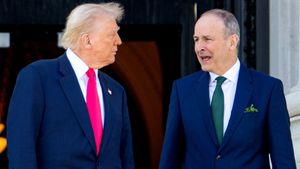Bill Day is a
familiar face out under the San Antonio viaducts, where
skinny addicts shoot drugs into their bruised arms.
Day, 73, is the
source of something many of them desperately need: clean
syringes, the distribution of which Day sees as his calling
from God to prevent the spread of disease.
Authorities see
it differently. Backed by an opinion from the Texas
attorney general, District Attorney Susan Reed says she can
prosecute anyone in possession of drug paraphernalia,
regardless of the reason they have it.
Unless the
legislature makes it otherwise -- which some members say
they hope to do next year -- Day can do no more than
exchange nods with the addicts he once helped and
wonder what will happen to them. He's been off the
streets since police ticketed him in January.
"I am really
angry," Day said, pointing to piles of used needles in
the brush under a bridge on the city's west side. "Every day
we're not out here, someone is getting HIV."
Richard Wolitski,
acting director of the division of HIV/AIDS prevention
at the Centers for Disease Control and Prevention, said
three major reviews of needle-exchange programs have
shown that they "decrease HIV transmission and do not
increase the use of illegal drugs." The programs also
provide drug users a way to get into treatment programs,
Wolitski said.
"No one says to
themselves, 'They're giving away syringes, let's go
get some heroin,'" said Day, who cofounded the nonprofit
Bexar Area Harm Reduction Coalition in 2003. "You're
first the addict and you do it whether you have a
clean syringe or not."
But David Murray,
chief scientist for the Office of National Drug Control
Policy, said recent research shows needle-exchange programs
don't change addicts' behavior.
"When it comes to
the distribution of needles, we know that it carries
an enablement of continued drug use," Murray said. "And
we fear, the evidence is strong, that it does not succeed in
its effort to control the contagion" of disease.
Murray said
needle-exchange programs don't address the core of the
HIV/AIDS problem, which is the high-risk behavior associated
with drug use, such as venereal disease and multiple
sexual partners. He advocated instead funding
treatment programs.
According to the
North American Syringe Exchange Network, there were 186
syringe-exchange programs in 36 states; Washington, D.C.;
and Puerto Rico as of November 2007.
Some exchanges
are authorized by state or local law, some aren't, and
some operate underground. But even where they aren't
authorized it's rare for law enforcement to take a
hard line on such programs, said William Martin, a
senior fellow at the James A. Baker III Institute for Public
Policy at Rice University. He said authorities often look
the other way because they believe the needle-exchange
programs provide a public service.
Day, who has AIDS
but didn't get it through drug use, started passing out
needles in San Antonio regularly a little over a year ago.
Around the same time, the state legislature authorized
Bexar County, which includes San Antonio, to set up a
separate pilot program.
State
representative Ruth Jones McClendon, a Democrat from San
Antonio, said lawmakers hoped to use the pilot program
to consider passing a statewide program during the
2009 legislative session.
But Reed said in
August that anyone with a needle, even in the program,
was breaking the law. "It's just a question of law," she
said.
Attorney General
Greg Abbott backed up Reed, saying people who possess
drug paraphernalia as part of a needle-exchange program can
be prosecuted because the law didn't specifically
exempt them.
Reed said the
cases against Day and two associates cited with him are on
hold until the Legislature meets next year.
Jones McClendon,
whose amendment created the pilot program, said it was
never lawmakers' intention to subject anyone to prosecution.
"To me it seems
quite shortsighted that our state lags so far behind
in this important concept of preventing such diseases," she
said.
Day said if he
gets back on the streets, it will be months before he's
able to regain the trust -- and dirty needles -- of those
he's worked with.
When he started,
he would get only 15 or 20 dirty needles a month because
the addicts didn't trust him. In the six months before he
quit, he said he got back more than 10,000. (AP)


















































































